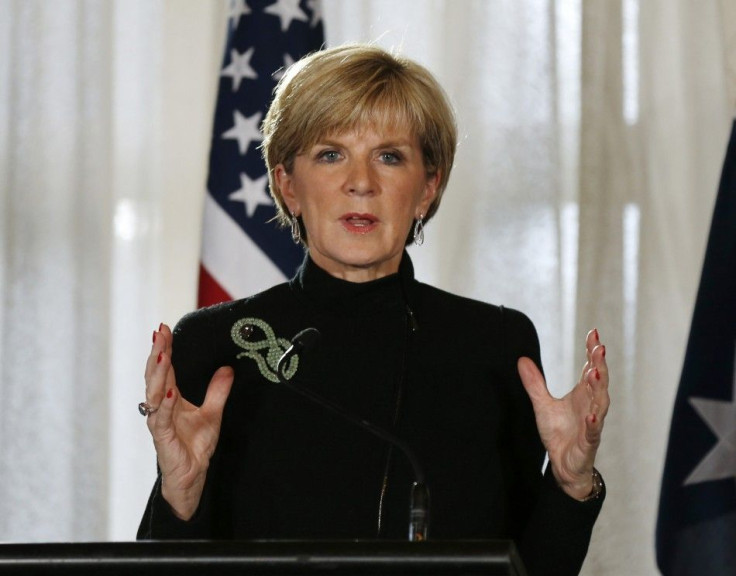Australia's Julie Bishop Named 'Most Powerful Woman' In Nation, Calls Emissions Target 'Ambitious'

Australian foreign minister Julie Bishop has been named the most powerful woman in the country. Joining her in Australia Women's Weekly power list for 2014 are Peta Credlin, Prime Minister Tony Abbott's chief of staff, and Catherine Livingstone, chairman of Telstra, in third place.
The respected women's journal has compiled a list of Australia's most powerful in the fields of business, politics, journalism and entertainment. World-renowned and award-winning actress Cate Blanchett was included in the list in 12th place followed by managing director of Google Australia and New Zealand Maile Carnegie in 13th place. Transgender army officer Lt Col Cate McGregor made it to the list at no. 48.
"Women tend to have an uneasy relationship with power," Helen McCabe, Australian Women's Weekly editor-in-chief, stated. She said that when the staff compiled the list, the most significant factor was not a woman's title or rank but her "ability to get things done."
Meanwhile, Bishop will be busy attending a UN summit in lieu of Prime Minister Abbott. She has told the summit that Australia's carbon emissions target was "ambitious." Speaking in the Major Economies Forum in New York, the foreign affairs minister said Australia was seriously committed to take the necessary steps in response to the growing threat of climate change.
Bishop announced that Australia will be reducing emissions by 5 percent below 2000 levels in 2020, according to a Guardian report. She called it an ambitious target as the country will attempt to reduce 22 percent of carbon emissions against "business-as-usual levels." However, the report said she did not discuss in detail what the country's plans for dealing with climate change beyond 2020 are.
Bishop said Australia fully supports the global climate agreement in 2015 in which world leaders are expected to gather in Paris and set more serious emission reduction targets for beyond 2020. She urged the U.S. and China, identified as major emitters of greenhouse gases, to present their pledges ahead of the meeting in Paris.
Australia's Climate Change Authority has called the country's emissions reduction target of 5 percent as "inadequate." The report said the group has called on the Abbott government to commit to at least 15 percent.





















